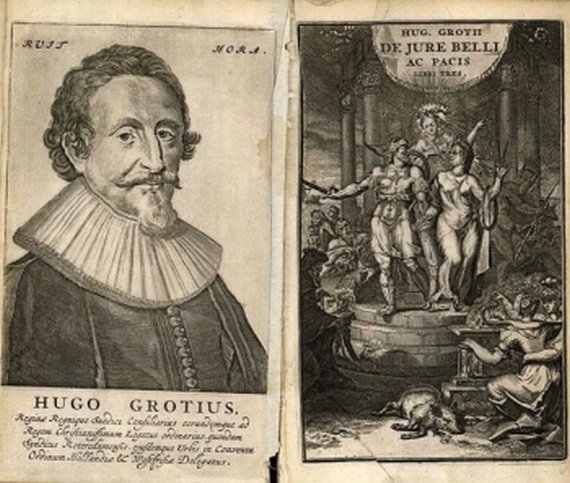
Grotius, de Jure Belli ac Pacis
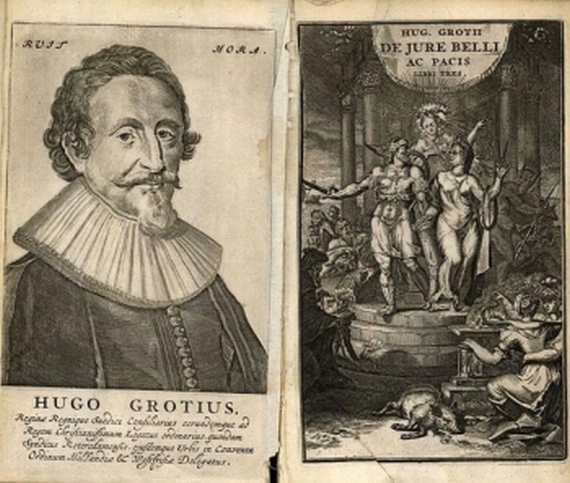
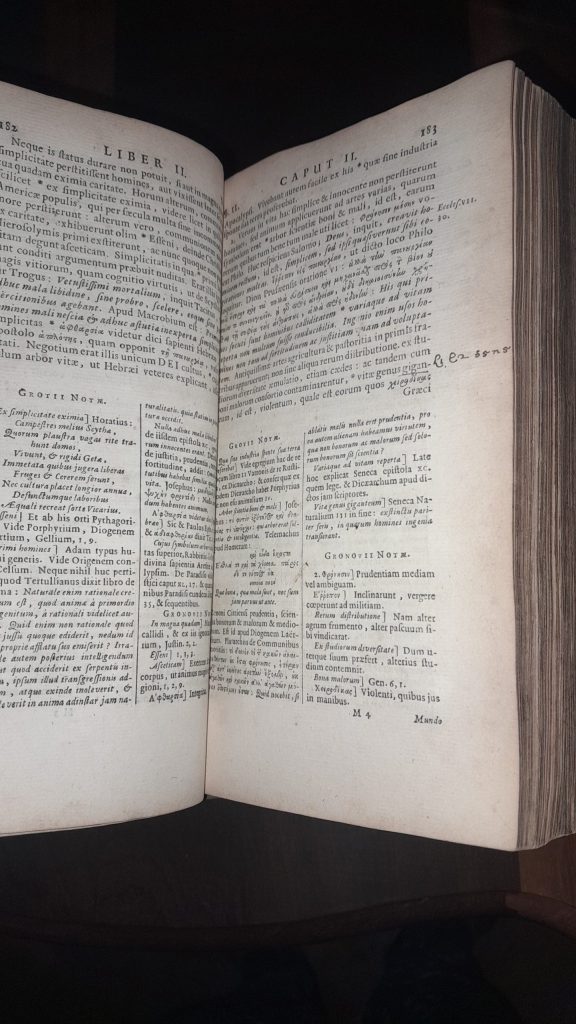
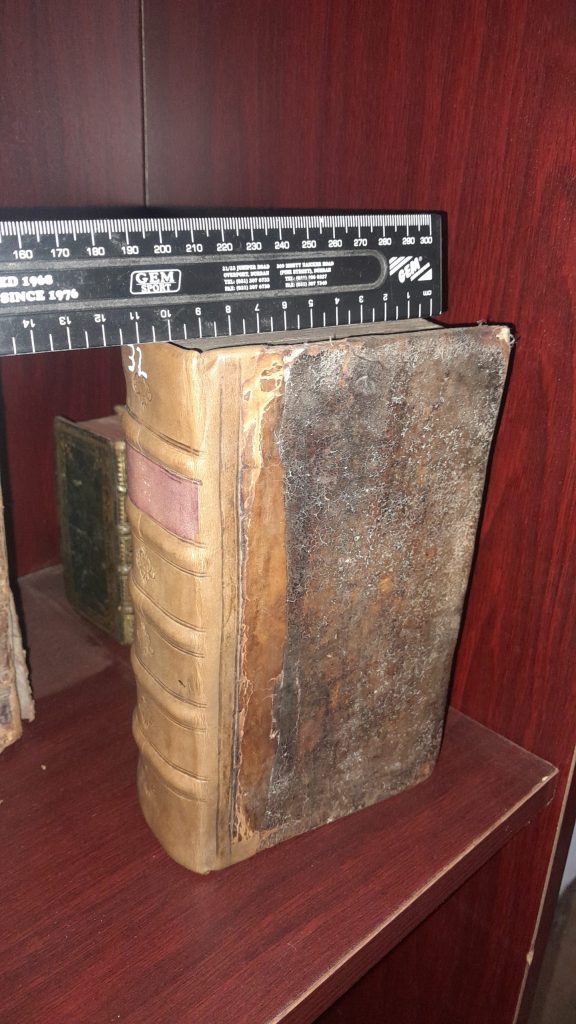

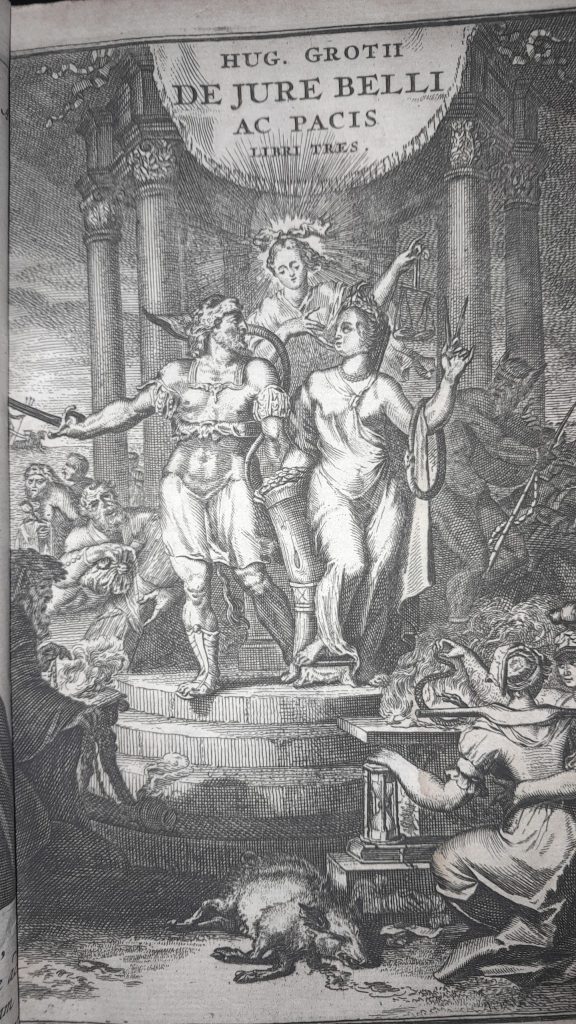
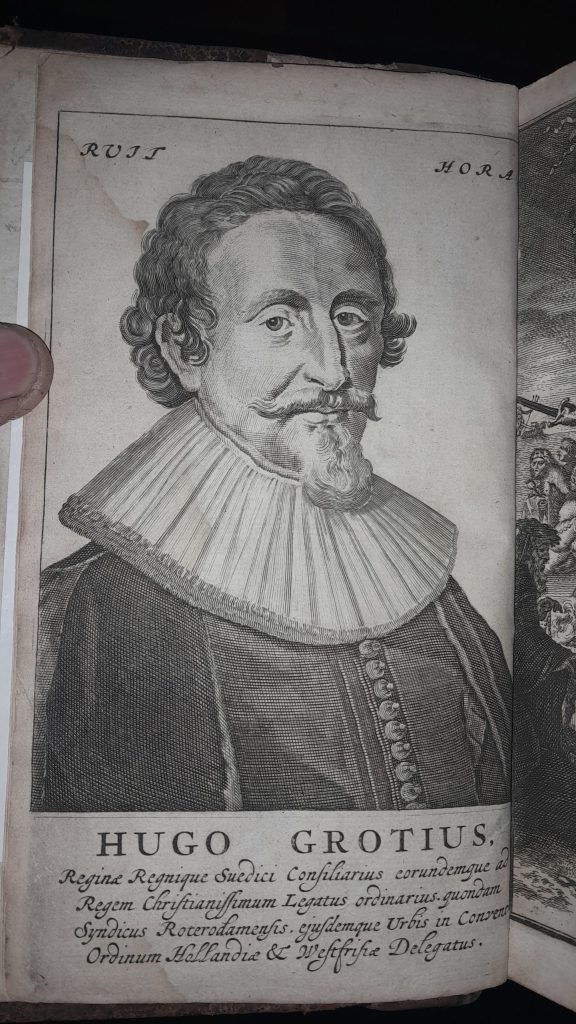
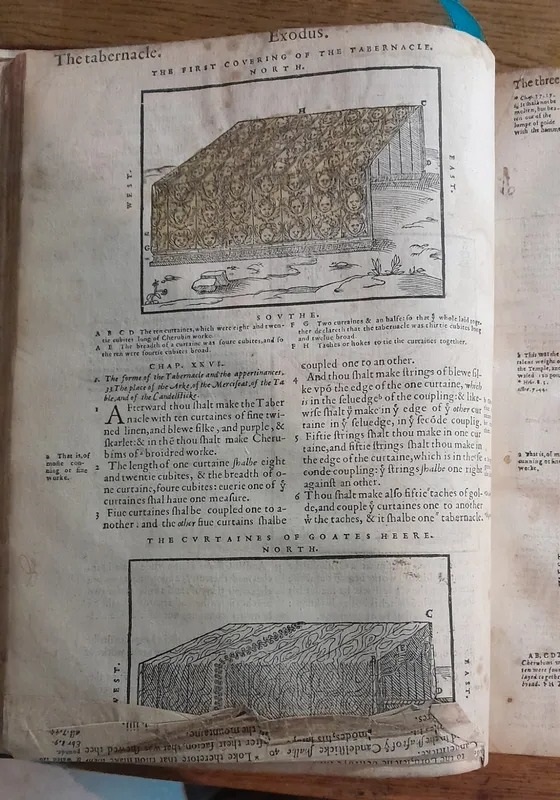
Hugo Grotius (1583–1645) was a Dutch philosopher, jurist, and theologian who is often considered the father of international law. His most famous work, “De Jure Belli ac Pacis” (On the Law of War and Peace), first published in 1625, laid the intellectual foundation for modern international law and the concept of natural law. This work remains a cornerstone in the fields of law, political science, and ethics.
Overview of De Jure Belli ac Pacis (On the Law of War and Peace)
- Historical Context:
- Grotius wrote De Jure Belli ac Pacis in the early 17th century, a time when Europe was embroiled in religious and political turmoil, including the Thirty Years’ War (1618–1648), which prompted Grotius to seek a more rational and ethical approach to conflicts between nations.
- The book sought to answer fundamental questions about war and peace, particularly the moral and legal justifications for engaging in war and the conduct of warfare.
- Main Themes:
- Natural Law and Rights:
- Grotius argued that there are universal principles of law and morality that are independent of any government or legal system. These principles, he asserted, are derived from natural law, a system of ethics that applies to all human beings regardless of their local customs or laws.
- He believed that all humans have natural rights, such as the right to self-preservation, which can justify actions like self-defense and, in some cases, war.
- Just War Theory (Jus ad Bellum):
- Grotius laid out the concept of just war (i.e., the ethical justification for war). According to Grotius, war could be justly waged under certain conditions:
- Just Cause: A war must be waged for a just cause, such as self-defense or protecting the innocent.
- Legitimate Authority: Only legitimate authorities (sovereigns or states) can declare war.
- Right Intention: The aim of the war should be to restore peace and justice, not for reasons of conquest or revenge.
- Proportionality: The violence used in war must be proportional to the injury suffered and the goals pursued.
- Last Resort: War should be a last resort after all peaceful means have been exhausted.
- Grotius laid out the concept of just war (i.e., the ethical justification for war). According to Grotius, war could be justly waged under certain conditions:
- Conduct of War (Jus in Bello):
- Grotius also discussed the laws of warfare itself, detailing how soldiers and combatants should behave during conflict. He argued for the humane treatment of prisoners and the prohibition of unnecessary cruelty.
- His work emphasized that even in war, certain principles of justice should apply, such as the protection of civilians, the humane treatment of prisoners, and the prohibition of plundering or other acts of unnecessary violence.
- Peace and Resolution (Jus Post Bellum):
- In the aftermath of war, Grotius believed that justice and peace must be restored, and the terms of peace should be fair and just to prevent future conflict.
- He argued that the consequences of war should be balanced and that peace settlements should respect the rights of individuals and the sovereignty of states.
- Natural Law and Rights:
- Philosophical Influence:
- Grotius’s work combined elements of natural law theory, which suggests that laws are derived from nature and reason, with a practical framework for applying those principles to international relations.
- His approach was groundbreaking because it sought to base international relations on a secular, rational understanding of morality, rather than on religious or theological dogma. This made his ideas particularly influential in the development of modern international law.
- Impact on Modern International Law:
- Grotius’s ideas formed the foundation of the concept of international law as we understand it today. His principles regarding the just conduct of war and the rights of nations to engage in war, as well as the protection of human rights and peacebuilding, influenced the development of subsequent legal codes and treaties, including the Geneva Conventions and the United Nations Charter.
- His work also influenced later thinkers such as Emer de Vattel, Immanuel Kant, and Thomas Hobbes.
Key Contributions of Grotius in De Jure Belli ac Pacis:
- Natural Law Theory: Grotius argued that even without divine revelation, human reason could discern the principles of justice.
- The Concept of Sovereignty: He supported the idea that states are sovereign entities, but that sovereignty is not absolute, and it must respect natural rights.
- The Rights of War and Peace: Grotius established a legal framework for justifying war, the conduct of war, and post-war peace agreements.
- The Protection of Non-Combatants: Grotius emphasized that civilians and non-combatants should be protected during conflict, which laid the groundwork for modern rules of war.
Legacy
- Grotius is often referred to as the “father of modern international law” due to the enduring relevance of his ideas about war, peace, and justice in the international community.
- De Jure Belli ac Pacis had a significant influence on the development of legal doctrines, the establishment of the Hague Conventions, and the creation of institutions like the International Criminal Court (ICC).
#Grotius #jontyknine








